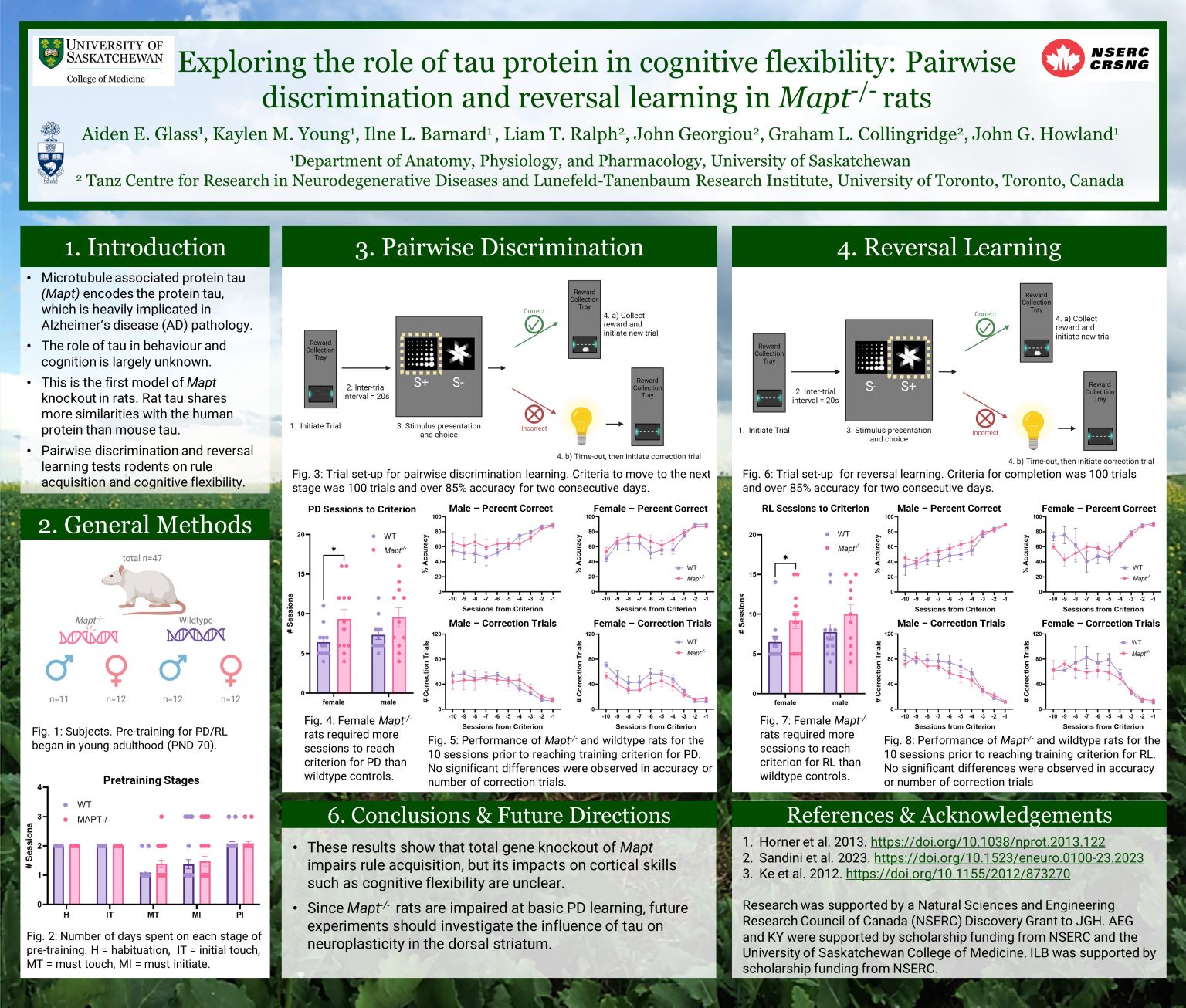
Exploring the role of tau in cognitive flexibility: Pairwise discrimination and reversal learning in MAPT-/- rats
Aiden Glass
The neuronal microtubule associated protein tau (Mapt) gene encodes the protein tau, which is involved in neuroplasticity, neuronal function, and is implicated in neurodegenerative disease. Tau pathologies such as Alzheimer’s disease (AD) affect many cognitive processes, including cognitive flexibility, which is the ability to shift attention between strategies and adapt to new information. The present experiment uses a novel rat Mapt knockout model to assess cognitive flexibility using the operant-based touchscreen tasks pairwise discrimination (PD) and reversal learning (RL). In PD, adult male and female Mapt-/- and litter-matched wildtype controls were simultaneously presented with two images and trained to reliably respond to only the rewarded image and avoid responding to the punished image. Animals then moved onto RL, in which the rewarded and punished images were swapped, necessitating the use of cognitive flexibility. Mapt-/- rats showed impairment on both PD and RL acquisition, as measured by number of sessions required to reach criterion, though this effect was significant only in females. These results reveal a nonspecific cognitive deficit in Mapt-/- rats, and a possible sex difference with females being more affected. Since PD acquisition is impaired, future experiments should investigate the influence of tau on neuroplasticity in the dorsal striatum.
